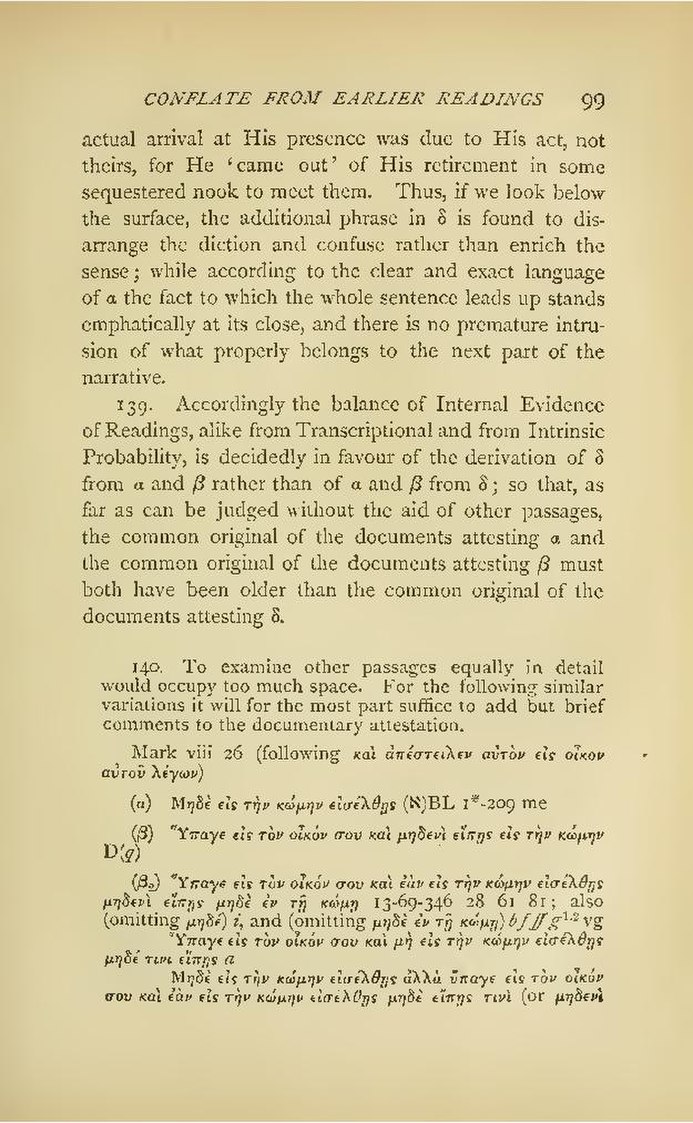actual arrival at His presence was due to His act, not theirs, for He 'came out' of His retirement in some sequestered nook to meet them. Thus, if we look below the surface, the additional phrase in δ is found to disarrange the diction and confuse rather than enrich the sense; while according to the clear and exact language of α the fact to which the whole sentence leads up stands emphatically at its close, and there is no premature intrusion of what properly belongs to the next part of the narrative.
139. Accordingly the balance of Internal Evidence of Readings, alike from Transcriptional and from Intrinsic Probability, is decidedly in favour of the derivation of δ from α and β rather than of α and β from δ; so that, as far as can be judged without the aid of other passages, the common original of the documents attesting α and the common original of the documents attesting β must both have been older than the common original of the documents attesting δ.
140. To examine other passages equally in detail would occupy too much space. For the following similar variations it will for the most part suffice to add but brief comments to the documentary attestation.
Mark viii 26 (following καὶ ἀπέστειλεν αὐτὸν εἰς οἶκον αὐτοῦ λέγων)
(α)Μηδὲ εἰς τὴν κώμην εἰσέλθῃς (א)BL i*-209 me
(β)Ὕπαγε εἰς τὸν οἶκόν σου καὶ μηδενὶ εἴπῃς εἰς τὴν κώμην D(q)
(β2) Ὕπαγε εἰς τὸν οἶκόν σου καὶ ἐὰν εἰς τὴν κώμην εἰσέλθῃς μηδενὶ εἴπῃς μηδὲ ἐν τῇ κώμῃ 13-69-346 28 61 81; also (omitting μηδέ) i, and (omitting μηδὲ ἐν τῇ κώμῃ b f ff g1.2 vg
Ὕπαγε εἰς τὸν οἶκόν σου καὶ μὴ εἰς τὴν κώμην εἰσέλθῃς μηδέ τινι εἴπῃς a
Μηδὲ εἰς τὴν κώμην εἰσέλθῃς ἀλλὰ ὔπαγε εἰς τὸν οἶκόν σου καὶ ἐὰν εἰς τὴν κώμην εἰσέλθῃς μηδὲ εἴπῃς τινὶ (or μηδενὶ